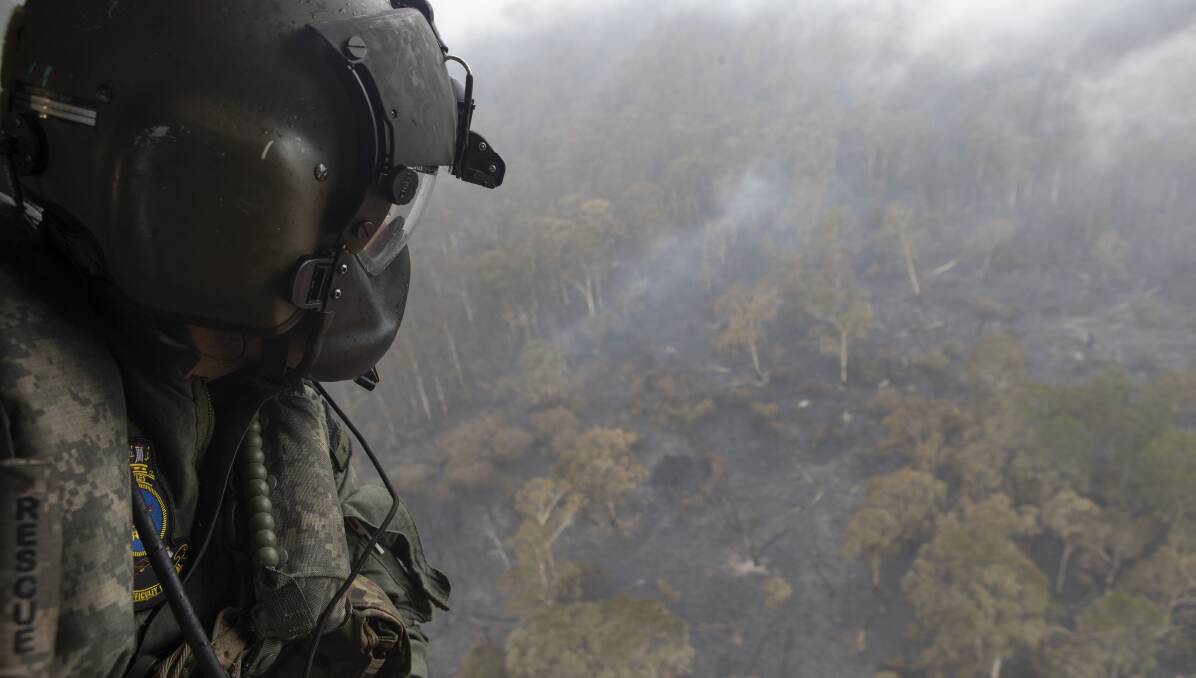Defence force reservists called out to support bushfire responses should have clear legal protections to do the job, a military law expert says.
Subscribe now for unlimited access.
or signup to continue reading
Director of ANU's Centre for Military and Security Law David Letts has called for the federal government to remove any "potential legal uncertainties" in its call-out to Australian Defence Force reservists.
The call-out to support responses to bushfires didn't authorise the defence force to use more extensive powers potentially available to the military, Associate Professor Letts said.
In an opinion piece published on Wednesday in The Canberra Times, he pointed to a law the government could use to call out the defence force and authorise it to detain, seize and search.
While it seemed to apply only in security incidents, there were reasons to consider using it when the defence force was tasked with helping states in natural disasters, he said.
"Providing legal certainty regarding the constitutional basis for the deployment of the ADF within Australia is critical in terms of establishing and maintaining public confidence that the ADF is being used in a manner that serves the national interest," Associate Professor Letts said.

Public anger and frustration were likely to grow as the extent of destruction caused by bushfires was revealed and the time to respond and rebuild grew.
"It is foreseeable that ADF personnel will be required to assist civil authorities deal with people who are unwilling to comply with directions to leave an area, or to conduct searches of property and seize items for a variety of reasons," Associate Professor Letts said.
"Without specific authority to undertake these activities, members of the ADF have no greater legal right to direct, search or seize than an ordinary citizen so this situation should be clarified."
It was "grossly unfair" to order members of the ADF to assist state and territory authorities without ensuring there were adequate legal protections for both the Australian community and the defence force, he said.
"Fortunately, during the current bushfire crisis there have been no reports of any circumstances where the involvement of the ADF has been anything other than welcomed and appreciated," Associate Professor Letts said.
"Nevertheless, removing any potential legal uncertainties associated with the call out of the reserves and the use of the ADF during Operation Bushfire Assist would be a highly prudent course of action."
The Prime Minister's office was approached for comment.
READ MORE:
Just over 1000 defence reservists are now in the field helping with the bushfire response, Major General Jake Ellwood said on Tuesday.
Defence was now working to land helicopters on amphibious ships stationed off the coast, off-loading personnel there to be taken to fire-affected areas by boat, he said.
From Wednesday, two Singaporean helicopters would be working in Sale, Victoria, and three New Zealand helicopters in Nowra.
Another 300 to 360 people were evacuated from Mallacoota on Tuesday using the Navy ship HMAS Choules.
Head of the government's new National Bushfire Recovery Agency Andrew Colvin said on Tuesday that he hadn't managed to get into the field yet but expected to be visiting fire-affected communities this week or next.
"I'm under no illusions about the size of the challenge that is ahead of us," he said.
"But just in the short 24 to 48 hours since this was announced, I have been inundated with support from inside and outside government."



